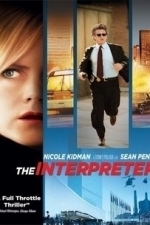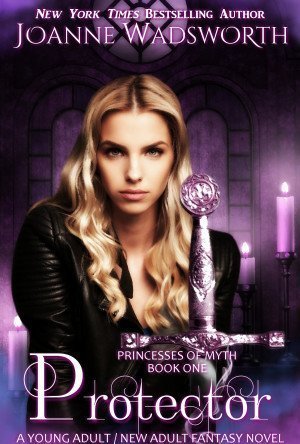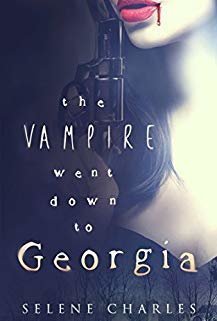Search
Search results
Gareth von Kallenbach (980 KP) rated The Interpreter (2005) in Movies
Aug 14, 2019
In 1945, the leaders of the world formed a charter to create the United Nations in an attempt to prevent conflicts that resulted in the Second World War. Unlike the
League of Nations before it, the U.N. as it is often known has endured over time, and has seen its membership grow over the years.
In the new film The Interpreter, Nicole Kidman stars as Sylvia Broom, an interpreter at the U.N. who spends her days translating various languages into English during various meetings and assemblies.
One evening Sylvia returns to the U.N. after hours to retrieve a bag that she had left in a sound booth. Unexpectedly, Sylvia hears a whispered conversation over the speakers in an African dialect know only to a few people, herself being one of them.
Despite some reservations Sylvia does not report her discovery until the following morning, when some odd circumstances come into play. Chief amongst them is the discovery that the person referred to in the conversation as “The Teacher” is very likely a controversial African leader who is on his way to address the U.N. in an effort to avoid being placed on trial by the World Court for atrocities.
Assigned to investigate the case is Tobin Keller (Sean Penn), an F.B.I. agent who has recently lost his wife and despite his grief, is throwing himself into his work. Tobin is skeptical over Sylvia’s report as he finds it odd that she just happened to overhear a conversation in a language that only a handful of people in the country, she included could understand. Tobin’s instincts tell him that this is simply a ploy to cancel the pending visit allowing political rivals to claim power in the absence of the African leader.
Under the thought that it is better to be safe than sorry, Tobin begins to investigate the case, and soon has far more questions than answers. It becomes clear that Sylvia is hiding something, and may indeed have a connection to the plot.
When Sylvia reports a break in and a masked figure on her balcony, Tobin and his team set up surveillance of Sylvia in an effort to get to the bottom of the plot With time definitely not on their side, more questions than answers keep emerging especially when prime suspects begin to vanish, and later turn up dead, or become victims in a horrific act of terrorism leaving Tobin to put the pieces together and protect the African leader at all costs.
While the film has a good premise and cast, it is sunk by a very dull and plodding plot, that drags on for over two hours and fails to pay off. The film could easily have had thirty minutes trimmed from its running time and not lost much of the story. While this may be a matter of stylistic preference what cannot be overlooked are the films glaring lack of tension or suspense and the sad lack of chemistry between Kidman and Penn. While theirs is not a romantic relationship, Penn seems as if he is being restrained as his part does not allow his talents to show.
The same goes for Kidman, who seems to be having trouble with her accents, as she flips between American, and African tinted accents throughout the film and seems at times to be simply going through the motions.
What is most puzzling to me is how a gifted director like Sydney Pollack allows the film to go on and on without any suspense or real dynamic to the story. It just keeps plodding along and never seems to go anywhere. It does not build up to the finale, it just happens and with some uninspired twists. It was very obvious to me from the start of the film who was behind the plot. There are some red herrings in the film but they seem tacked on rather than natural elements to the plot.
League of Nations before it, the U.N. as it is often known has endured over time, and has seen its membership grow over the years.
In the new film The Interpreter, Nicole Kidman stars as Sylvia Broom, an interpreter at the U.N. who spends her days translating various languages into English during various meetings and assemblies.
One evening Sylvia returns to the U.N. after hours to retrieve a bag that she had left in a sound booth. Unexpectedly, Sylvia hears a whispered conversation over the speakers in an African dialect know only to a few people, herself being one of them.
Despite some reservations Sylvia does not report her discovery until the following morning, when some odd circumstances come into play. Chief amongst them is the discovery that the person referred to in the conversation as “The Teacher” is very likely a controversial African leader who is on his way to address the U.N. in an effort to avoid being placed on trial by the World Court for atrocities.
Assigned to investigate the case is Tobin Keller (Sean Penn), an F.B.I. agent who has recently lost his wife and despite his grief, is throwing himself into his work. Tobin is skeptical over Sylvia’s report as he finds it odd that she just happened to overhear a conversation in a language that only a handful of people in the country, she included could understand. Tobin’s instincts tell him that this is simply a ploy to cancel the pending visit allowing political rivals to claim power in the absence of the African leader.
Under the thought that it is better to be safe than sorry, Tobin begins to investigate the case, and soon has far more questions than answers. It becomes clear that Sylvia is hiding something, and may indeed have a connection to the plot.
When Sylvia reports a break in and a masked figure on her balcony, Tobin and his team set up surveillance of Sylvia in an effort to get to the bottom of the plot With time definitely not on their side, more questions than answers keep emerging especially when prime suspects begin to vanish, and later turn up dead, or become victims in a horrific act of terrorism leaving Tobin to put the pieces together and protect the African leader at all costs.
While the film has a good premise and cast, it is sunk by a very dull and plodding plot, that drags on for over two hours and fails to pay off. The film could easily have had thirty minutes trimmed from its running time and not lost much of the story. While this may be a matter of stylistic preference what cannot be overlooked are the films glaring lack of tension or suspense and the sad lack of chemistry between Kidman and Penn. While theirs is not a romantic relationship, Penn seems as if he is being restrained as his part does not allow his talents to show.
The same goes for Kidman, who seems to be having trouble with her accents, as she flips between American, and African tinted accents throughout the film and seems at times to be simply going through the motions.
What is most puzzling to me is how a gifted director like Sydney Pollack allows the film to go on and on without any suspense or real dynamic to the story. It just keeps plodding along and never seems to go anywhere. It does not build up to the finale, it just happens and with some uninspired twists. It was very obvious to me from the start of the film who was behind the plot. There are some red herrings in the film but they seem tacked on rather than natural elements to the plot.
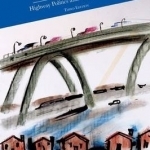
Interstate: Express Highway Politics, 1939-2009
Book
This new, expanded edition brings the story of the Interstates into the twenty-first century. It...
Bob Mann (459 KP) rated Greyhound (2020) in Movies
Aug 9, 2020
Hanks and Stephen Graham. (1 more)
Tense cat and mouse hunting
Grey but exciting.
Here's a great movie trivia question for you.... which 2020 movies link Claire Duburcq and Elizabeth Shue, and why? The answer is at the end of this review!
The battle of the Atlantic, which ran from 1939 to the end of the war, was a key battleground of World War 2. Failure to supply the European battlefront with fresh supplies and troops from the States would spell certain failure. (The wiki page addressing this is here.) But it's a field of combat that has been relatively overlooked at the movies. Of the handful of feature films, the most famous are that famously stiff-upper-lipped British offering "The Cruel Sea" from 1953 and Wolfgang Petersen's original 1981 U-boat film, "Das Boot", seeing it from the German's side.
Here, the subject gets the full Tom Hanks treatment. Not only does he star in the movie, but he also wrote it, based on the C.S. Forester novel "The Good Shepherd".
We join Captain Krause (Tom Hanks, with a strangely German-sounding name!) on dry land awaiting his beloved Evelyn (Elizabeth Shue) for a proposal. But that's the last dry land we see in the movie, since Krause is captaining the US destroyer "Greyhound" on its maiden voyage to protect a convoy of UK and US ships heading for England. But danger lurks beneath the waves as a pack of U-boats attempt to sink as many vessels as possible.
The issue with a movie about a war-time transatlantic crossing is that the ships are grey, the sky is grey and the sea is grey. It's a monochromatic and rather depressing context for a movie. To combat that, the CGI used to recreate the action needs to be good, and thankfully the film delivers in that department.
Where I had quibbles - and I'm not sure whether this was in Hank's original screenplay or the result of director Aaron Schneider's attempts at "added flair" - was in stopping the action mid-scene for a zoom up above the clouds to see the Aurora Borealis. Unnecessary and distracting.
Where the film really scores is in the tense action sequences. As a viewer, I found myself straining forwards in my seat for the "ping" of the sonar! The cat and mouse games being played out with the hidden foe are certainly well done.... albeit a colleague of mine refuses to watch it because "torpedoes don't bounce off the sides of ships" as shown in the trailer!
Perhaps what might have made the film richer still would have been the view from the German side. Another star name as the 'heard but never seen' mocking U-boat commander might have turned this into even more of a Shakespearean battle-royale.
Overall, this is an enthralling and enjoyable watch that I would recommend. Tom Hanks delivers YET another compelling captain role. It seems to be the rank that he naturally gravitates to.... having the gravitas to command, but not being too far removed from the common man. Here he is supported by the omnipresent Stephen Graham, also equally good.
It's a great shame that this never got the wide-screen cinematic release, because Greyhound deserved it. Who knows, perhaps with cinemas spasmodically opening up, there's still time for a national release. That would be good, and I'd certainly go and see it again on the big screen.
And, by the way, the answer to my trivia question is this film - Greyhound - and 1917. The reason being that in both movies the actresses named were the sole female players within the whole cast.
(For the full graphical review, please visit https://bob-the-movie-man.com/2020/08/01/one-manns-movies-film-review-greyhound-2020/ .)
The battle of the Atlantic, which ran from 1939 to the end of the war, was a key battleground of World War 2. Failure to supply the European battlefront with fresh supplies and troops from the States would spell certain failure. (The wiki page addressing this is here.) But it's a field of combat that has been relatively overlooked at the movies. Of the handful of feature films, the most famous are that famously stiff-upper-lipped British offering "The Cruel Sea" from 1953 and Wolfgang Petersen's original 1981 U-boat film, "Das Boot", seeing it from the German's side.
Here, the subject gets the full Tom Hanks treatment. Not only does he star in the movie, but he also wrote it, based on the C.S. Forester novel "The Good Shepherd".
We join Captain Krause (Tom Hanks, with a strangely German-sounding name!) on dry land awaiting his beloved Evelyn (Elizabeth Shue) for a proposal. But that's the last dry land we see in the movie, since Krause is captaining the US destroyer "Greyhound" on its maiden voyage to protect a convoy of UK and US ships heading for England. But danger lurks beneath the waves as a pack of U-boats attempt to sink as many vessels as possible.
The issue with a movie about a war-time transatlantic crossing is that the ships are grey, the sky is grey and the sea is grey. It's a monochromatic and rather depressing context for a movie. To combat that, the CGI used to recreate the action needs to be good, and thankfully the film delivers in that department.
Where I had quibbles - and I'm not sure whether this was in Hank's original screenplay or the result of director Aaron Schneider's attempts at "added flair" - was in stopping the action mid-scene for a zoom up above the clouds to see the Aurora Borealis. Unnecessary and distracting.
Where the film really scores is in the tense action sequences. As a viewer, I found myself straining forwards in my seat for the "ping" of the sonar! The cat and mouse games being played out with the hidden foe are certainly well done.... albeit a colleague of mine refuses to watch it because "torpedoes don't bounce off the sides of ships" as shown in the trailer!
Perhaps what might have made the film richer still would have been the view from the German side. Another star name as the 'heard but never seen' mocking U-boat commander might have turned this into even more of a Shakespearean battle-royale.
Overall, this is an enthralling and enjoyable watch that I would recommend. Tom Hanks delivers YET another compelling captain role. It seems to be the rank that he naturally gravitates to.... having the gravitas to command, but not being too far removed from the common man. Here he is supported by the omnipresent Stephen Graham, also equally good.
It's a great shame that this never got the wide-screen cinematic release, because Greyhound deserved it. Who knows, perhaps with cinemas spasmodically opening up, there's still time for a national release. That would be good, and I'd certainly go and see it again on the big screen.
And, by the way, the answer to my trivia question is this film - Greyhound - and 1917. The reason being that in both movies the actresses named were the sole female players within the whole cast.
(For the full graphical review, please visit https://bob-the-movie-man.com/2020/08/01/one-manns-movies-film-review-greyhound-2020/ .)
Gareth von Kallenbach (980 KP) rated Call of Duty: Infinite Warfare - Absolultion in Video Games
Jun 19, 2019
The third of a planned four content packs for Call of Duty: Infinite Warfare has arrived with Absolution. The collection was first available for the Playstation 4 system and was released for the Xbox One and PC platforms about five weeks later and contains the usual offerings of four new maps and a new chapter for the Zombie mode of the game.
The maps are as follows…
Ember
This is a remake of the classic map “Resistance” From the castle lined landscape to the close-quarters fighting in rooms like gallows or a torture area this is a great map for those looking to run and gun.
Bermuda
This is a fun map based on a Shanty Town fishing village. There are locales ranging from a Fish Market to a Lighthouse and the mix of colors and action make this one really enjoyable.
Permafrost
This is a frozen landscape set in the ruins of a city. The map has several open areas where players can attack from above thanks to holes in the roof and streets. The debris strewn map offers plenty of cover but also numerous places for enemies to attack from all angles.
Fore
This is a large map that is so much fun to play. Set in a mini-golf course, players can run into the arcade, putting areas, and props to attack the enemy. There is plenty of cover and also terrain that is uneven giving a new and diverse set of challenges to players.
While the new maps are lots of fun, the main draw of the collection was the latest chapter in the Zombie mode where four aspiring actors are drawn into actual horror films by a demented Director.
The previous chapters have given us an 80s theme park, a 90s Summer Camp, and a 70s Disco Infused Martial Arts setting. This time out, Attack of the Radioactive things lets players play with and interact with Elvira in a 1950s Atomic Monster setting. The mode starts in Black and White before moving to color and even allows for a red tint Chroma mode.
Of course waves of Zombies and other terrors await and players must run and fight to survive.
This has been another winning collection for Infinite Warfare. While it does not offer anything radically new or different, it does offer plenty of fun and will increase your enjoyment of the game.
I am looking forward to seeing the final pack, around October ahead of the new Call of Duty: World War 2.
http://sknr.net/2017/08/13/call-duty-infinite-warfare-absolution-dlc/
The maps are as follows…
Ember
This is a remake of the classic map “Resistance” From the castle lined landscape to the close-quarters fighting in rooms like gallows or a torture area this is a great map for those looking to run and gun.
Bermuda
This is a fun map based on a Shanty Town fishing village. There are locales ranging from a Fish Market to a Lighthouse and the mix of colors and action make this one really enjoyable.
Permafrost
This is a frozen landscape set in the ruins of a city. The map has several open areas where players can attack from above thanks to holes in the roof and streets. The debris strewn map offers plenty of cover but also numerous places for enemies to attack from all angles.
Fore
This is a large map that is so much fun to play. Set in a mini-golf course, players can run into the arcade, putting areas, and props to attack the enemy. There is plenty of cover and also terrain that is uneven giving a new and diverse set of challenges to players.
While the new maps are lots of fun, the main draw of the collection was the latest chapter in the Zombie mode where four aspiring actors are drawn into actual horror films by a demented Director.
The previous chapters have given us an 80s theme park, a 90s Summer Camp, and a 70s Disco Infused Martial Arts setting. This time out, Attack of the Radioactive things lets players play with and interact with Elvira in a 1950s Atomic Monster setting. The mode starts in Black and White before moving to color and even allows for a red tint Chroma mode.
Of course waves of Zombies and other terrors await and players must run and fight to survive.
This has been another winning collection for Infinite Warfare. While it does not offer anything radically new or different, it does offer plenty of fun and will increase your enjoyment of the game.
I am looking forward to seeing the final pack, around October ahead of the new Call of Duty: World War 2.
http://sknr.net/2017/08/13/call-duty-infinite-warfare-absolution-dlc/

Audiobooks - 5,239 Classics Ready to Listen
Book and Education
App
This is the top rated audiobook app on the planet. Browse our handpicked collections, download any...
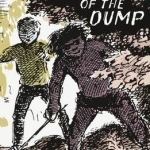
Stig of the Dump
Clive King and Edward Ardizzone
Book
A Puffin Book - stories that last a lifetime. Puffin Modern Classics are relaunched under a new...
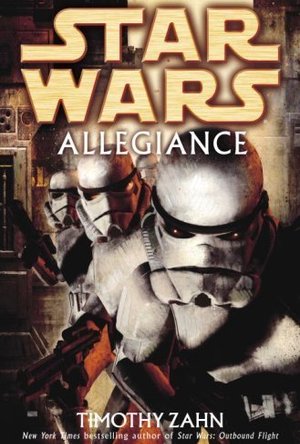
Allegiance (Star Wars Legends)
Book
Never before has the incendiary mix of action, politics, and intrigue that has become Timothy...
Kara Skinner (332 KP) rated Protector in Books
Jun 12, 2019
Girl Doesn’t Take Her Mate’s Crap in this YA Fantasy Romance Novel
Contains spoilers, click to show
Genre: Fantasy, YA
Word Count: 86,170
Average Goodreads Rating: 3.75 out of 5 stars
My rating: 3 out of 5 stars
Faith thought she was a normal human girl. Then she turned 18 and started developing abilities. Around the same time, a mysterious girl named Belle showed up and explained to Faith that she was really a Halfling, who belonged to an alien planet. Not only that, but she had the powerful ability of Forewarning, a skill that was highly coveted, especially by the Loverias and the Wincrests, two rival royal families on the brink of going to war with each other. Things get even more complicated when Faith forms a mated bond with Prince Davio Loveria– right before finding out her long-absent father is Prince Alexo Wincrest, Davio’s sworn enemy.
Caught in an impending war on a foreign planet, Faith must think and learn fast to keep herself from becoming a political pawn while also keeping her family safe.
Faith is a fucking badass and I love her. She acts like a teenaged girl, with all the angst and drama that comes with it, but at the same times she’s smart, and she won’t take shit, especially not from Davio. I love how resourceful she is and how quickly she’s able to adapt to a foreign planet with different cultures and abilities. But at the same time, she’s not a Mary Sue. She does have issues with learning the culture and controlling her abilities. She also doesn’t deal well with having her world turned upside down but her reactions aren’t unrealistic and they make me love her that much more.
Davio, however, is a piece of shit. I knocked off a star just because he exists. He’s a pompous brat with less maturity and poise than a two-year-old. When he finally accepts that he’s mated to Faith, he shows his “love” by controlling her and ordering her around. He doesn’t let her be alone because she needs to be protected. He demands that she either be with him or one of his bodyguards at all time, effectively keeping her a prisoner. This is supposedly because she has Forewarning, which makes her likely to get kidnapped or killed. I would have an easier time believing that if she had ever gotten attacked in the book. But the only people who attack her are Davio’s own bodyguards. No one else gives a shit.
He also loves ordering her around. He’ll order her to get showered and dressed in two minutes. He also orders her to betray her father. Davio is actually shocked when Faith won’t give him intimate secrets about how to take down her father. He accuses her of being a traitor when she refuses to be part of any plan that will get her father killed or kidnapped.
Davio hates Faith’s father for being from the wrong country, he always thinks he’s right, and he’s controlling to boot. He’s basically teenaged Trump.
Davio is the biggest problem in the book. Almost everything else I enjoyed. I loved the world building and how the mated bond was portrayed. Even though Faith and Davio were connected through the bond and couldn’t be apart very long without feeling anxious and depressed, they weren’t brainwashed by it. They still didn’t trust or even love each other for most of the book and they could identify what feelings were real and what was from the bond. It’s rare when a book can have soulmates without having insta-love, but Protector pulled it off.
I’m still confused by Faith’s parents, however. Faith’s mother raised her by herself on Earth after getting abandoned by Alexo. But when he shows up eighteen years later and has a brief conversation with her, she’s completely willing to travel to a foreign planet, be banned from going back to Earth. She also needs to pretend to be his wife despite hating him for abandoning her. I honestly have no idea why but that might get explained in later books.
Word Count: 86,170
Average Goodreads Rating: 3.75 out of 5 stars
My rating: 3 out of 5 stars
Faith thought she was a normal human girl. Then she turned 18 and started developing abilities. Around the same time, a mysterious girl named Belle showed up and explained to Faith that she was really a Halfling, who belonged to an alien planet. Not only that, but she had the powerful ability of Forewarning, a skill that was highly coveted, especially by the Loverias and the Wincrests, two rival royal families on the brink of going to war with each other. Things get even more complicated when Faith forms a mated bond with Prince Davio Loveria– right before finding out her long-absent father is Prince Alexo Wincrest, Davio’s sworn enemy.
Caught in an impending war on a foreign planet, Faith must think and learn fast to keep herself from becoming a political pawn while also keeping her family safe.
Faith is a fucking badass and I love her. She acts like a teenaged girl, with all the angst and drama that comes with it, but at the same times she’s smart, and she won’t take shit, especially not from Davio. I love how resourceful she is and how quickly she’s able to adapt to a foreign planet with different cultures and abilities. But at the same time, she’s not a Mary Sue. She does have issues with learning the culture and controlling her abilities. She also doesn’t deal well with having her world turned upside down but her reactions aren’t unrealistic and they make me love her that much more.
Davio, however, is a piece of shit. I knocked off a star just because he exists. He’s a pompous brat with less maturity and poise than a two-year-old. When he finally accepts that he’s mated to Faith, he shows his “love” by controlling her and ordering her around. He doesn’t let her be alone because she needs to be protected. He demands that she either be with him or one of his bodyguards at all time, effectively keeping her a prisoner. This is supposedly because she has Forewarning, which makes her likely to get kidnapped or killed. I would have an easier time believing that if she had ever gotten attacked in the book. But the only people who attack her are Davio’s own bodyguards. No one else gives a shit.
He also loves ordering her around. He’ll order her to get showered and dressed in two minutes. He also orders her to betray her father. Davio is actually shocked when Faith won’t give him intimate secrets about how to take down her father. He accuses her of being a traitor when she refuses to be part of any plan that will get her father killed or kidnapped.
Davio hates Faith’s father for being from the wrong country, he always thinks he’s right, and he’s controlling to boot. He’s basically teenaged Trump.
Davio is the biggest problem in the book. Almost everything else I enjoyed. I loved the world building and how the mated bond was portrayed. Even though Faith and Davio were connected through the bond and couldn’t be apart very long without feeling anxious and depressed, they weren’t brainwashed by it. They still didn’t trust or even love each other for most of the book and they could identify what feelings were real and what was from the bond. It’s rare when a book can have soulmates without having insta-love, but Protector pulled it off.
I’m still confused by Faith’s parents, however. Faith’s mother raised her by herself on Earth after getting abandoned by Alexo. But when he shows up eighteen years later and has a brief conversation with her, she’s completely willing to travel to a foreign planet, be banned from going back to Earth. She also needs to pretend to be his wife despite hating him for abandoning her. I honestly have no idea why but that might get explained in later books.
Darren (1599 KP) rated Skinwalkers (2007) in Movies
Jul 25, 2019
Story: Skinwalkers starts as Varek (Behr) leads the hunt for a young boy for his werewolf pack, joined by Sonja (Malthe) he learns the location of Timothy (Knight) which takes him to small town to collect him.
Varek didn’t count on Timothy being under the watch of another prepared werewolf pack led by Jonas (Koteas) and his daughter-in-law Rachel (Mitra) who wasn’t ready to learn the truth that on Tim’s 13th birthday everything changes in the battle.
Thoughts on Skinwalkers
Characters – Varek is the leader of the werewolf pack that wants Timothy dead to stop the event he will cause, he hunts calmly through the film knowing how to get ahead of his enemies, though he is unaware of his connection to the child. Jonas has been protecting his nephew for years now, knowing what he means to the species, he has built the team his truss around him to make sure he is safe. Rachel is the mother of Timothy, she thinks he is just a normal kid and that she lives in a normal town, he must learn fast how to cope in this world filled with werewolves and protect her son. Sonja is the deadliest fighter on Varek side of the war, she enjoys hurting people and we see her take pleasure in this.
Performances – Jason Behr as the conflicted werewolf is good to watch, he shines on the bad boy side of this story, though when he must show the other side of the emotions we see him struggle at times. Elias Koteas is strong for his role which is one that we often see him in. Rhona Mitra does well in the reluctant heroes being the strong need to learn to battle mother figure in the film. everyone else in the film is fine without needing to be anything special, they fit their roles well to help the story flow.
Story – The story here follows two warring werewolf packs that know the importance of a child for both their existences, so basically something we have seen before only with a modern style to it. The fact the story does feel like an introduction to a much big world building idea is promising and while it isn’t the film’s fault we didn’t see the next chapter, it does show us how story telling can think ahead of time. If we are being honest this is a by the book storyline, it doesn’t bring us anything new to the werewolf mythology it just tries to keep it in the modern world.
Action/Fantasy/Horror – The action sequences are mixed bag because we have shoot-out which are routine and lack the peril for certain characters, while the fights show the effects that two werewolves fighting would have on each other. The fantasy world of werewolves living among humans is nicely done, showing two sides to them, though the horror does seem weak because we never feel terrified by what we are seeing.
Settings – The film uses the settings in a mix of quality and generic, the small town gets the big surprise with everyone being part of the protection, then we hit the road and its nothing we haven’t seen before.
Special Effects – The effects for the werewolves and wounds look nice, its just most are hidden from the full effect of the shock.
Scene of the Movie – Town stand off.
That Moment That Annoyed Me – There are a few blink and you miss it moments.
Final Thoughts –This is a by the book werewolf film, it has good moments, it has forgettable moments and ends up feeling like the pilot for a television show.
Overall: The werewolf genre done safely.
Varek didn’t count on Timothy being under the watch of another prepared werewolf pack led by Jonas (Koteas) and his daughter-in-law Rachel (Mitra) who wasn’t ready to learn the truth that on Tim’s 13th birthday everything changes in the battle.
Thoughts on Skinwalkers
Characters – Varek is the leader of the werewolf pack that wants Timothy dead to stop the event he will cause, he hunts calmly through the film knowing how to get ahead of his enemies, though he is unaware of his connection to the child. Jonas has been protecting his nephew for years now, knowing what he means to the species, he has built the team his truss around him to make sure he is safe. Rachel is the mother of Timothy, she thinks he is just a normal kid and that she lives in a normal town, he must learn fast how to cope in this world filled with werewolves and protect her son. Sonja is the deadliest fighter on Varek side of the war, she enjoys hurting people and we see her take pleasure in this.
Performances – Jason Behr as the conflicted werewolf is good to watch, he shines on the bad boy side of this story, though when he must show the other side of the emotions we see him struggle at times. Elias Koteas is strong for his role which is one that we often see him in. Rhona Mitra does well in the reluctant heroes being the strong need to learn to battle mother figure in the film. everyone else in the film is fine without needing to be anything special, they fit their roles well to help the story flow.
Story – The story here follows two warring werewolf packs that know the importance of a child for both their existences, so basically something we have seen before only with a modern style to it. The fact the story does feel like an introduction to a much big world building idea is promising and while it isn’t the film’s fault we didn’t see the next chapter, it does show us how story telling can think ahead of time. If we are being honest this is a by the book storyline, it doesn’t bring us anything new to the werewolf mythology it just tries to keep it in the modern world.
Action/Fantasy/Horror – The action sequences are mixed bag because we have shoot-out which are routine and lack the peril for certain characters, while the fights show the effects that two werewolves fighting would have on each other. The fantasy world of werewolves living among humans is nicely done, showing two sides to them, though the horror does seem weak because we never feel terrified by what we are seeing.
Settings – The film uses the settings in a mix of quality and generic, the small town gets the big surprise with everyone being part of the protection, then we hit the road and its nothing we haven’t seen before.
Special Effects – The effects for the werewolves and wounds look nice, its just most are hidden from the full effect of the shock.
Scene of the Movie – Town stand off.
That Moment That Annoyed Me – There are a few blink and you miss it moments.
Final Thoughts –This is a by the book werewolf film, it has good moments, it has forgettable moments and ends up feeling like the pilot for a television show.
Overall: The werewolf genre done safely.
KittyMiku (138 KP) rated The Vampire went to Georgia in Books
May 23, 2019
I really have to say that as much as I loved this book and this series, that I found the final battle a little anticlimactic. I was really hoping for more, and even though I did hope for more, I wasn't entirely disappointed. In this 216 page book, I think I cried for a third of it. I have to say that even with a few things I would have loved to see differently, that the overall book was amazing.
First, to see everything that we only got glimpses at before to unfold, was amazing. To learn how some of the characters who seemed to just be filler to hold such an important role in saving the world was truly inspiring. I think my favorite part was learning how Death himself had changed because of Pandora and her lover, as well as how Scarlett and Tenebris were stronger in this world together than Tenebris had been in other worlds by herself. I have to say that the love that Death had for his daughters Scarlett and Tenebris. had been touching and surprisingly difficult to understand when he was asking so much from them. But it wasn't just his love that made you smile and feel all warm and fuzzy, it was the love of all those around them as well. To willingly sacrifice yourself for someone is a huge deal and there were plenty of sacrificing in this book that kept your heart bleeding. However, I have to say, it was what definitely made me not want to stop reading.
This kind of thing reminds me of a saying that states if you love someone truly, then you have to be willing to let go of them. Everyone in this book had loved Scarlett so much, they were willing to do whatever it took, even if it broke her down to nothing. I hated seeing her hurt that way but the strength while dealing with it all and how she was determined to be strong and prove what everyone was saying in times to be false, was just truly amazing. Even though I felt like my own heart was being ripped out, I could see how all the betrayals and pains of the previous books helped her cope and deal with the impending battle, whether or not that I felt she deserved any of it.
Even though love and romance was spread through the series, the romance was heavily lacked in this book. Which made is extremely serious. Though you knew who loved who and it was stated in their appropriate times, the book just didn't have all the romantic drama the others had. It seemed to be too serious at times and I would have loved some comedy or that romantic air to it to help break up all the seriousness that the book seemed to drag on about. Not saying the seriousness ruined the book. It just seemed to end slightly anticlimactic compared to what you were being led to believe would happen. Which would have to be the biggest complaint I had. This next part WILL have spoilers and I apologize for that, but it may save you from feeling let down. If you don't wish to read the spoilers, you can skip to the final paragraph.
When you first learn of how War and Scarlett and Tenebris are connected and how there will be a battle between War nd Scarlett, who is the shell that holds Tenebris and ground the chaotic being, you find yourself excited for the battle. However, at the end, during the face off, Death grants the girls one last gift and suddenly War just pretty much gives up. Don't get me wrong, if I had to fight the dragon Scarlett and Tenebris transformed into, I would be ready to throw in the towel, but still, Tenebris was supposed to be War's right hand woman and to see her standing by Death should have been the rage enough to lead that woman into battle. This is War after all. But no the Horseman pretty much just gives up and allows herself to die. To me, not having the battle and making it end in such a way was disheartening and I am quite upset over it. I was moved to tears all the way up until this point and now I can't even get the action I felt I needed to be okay with the prior actions of characters. Needless to say, the fight scene wasn't all that it could have been.
I would rate this book 3 stars out of 5 stars because as much as I loved crying at certain parts and we were able to learn more about a few of the beloved characters and so on, the ending wasn't all that it was chalked up to be. It was a huge let down, in my opinion. The series overall was amazing and besides the ending I would just make a few changes, like maybe adding the novellas into the books that they belong before or after, instead of leaving a note before a book about a novella being needed for that book. And maybe making the ending have slightly more action. I would rate the series overall, 4 stars out of 5 stars and recommend it to anyone into the paranormal romance and adventure scene with a bit of mystery in it.
First, to see everything that we only got glimpses at before to unfold, was amazing. To learn how some of the characters who seemed to just be filler to hold such an important role in saving the world was truly inspiring. I think my favorite part was learning how Death himself had changed because of Pandora and her lover, as well as how Scarlett and Tenebris were stronger in this world together than Tenebris had been in other worlds by herself. I have to say that the love that Death had for his daughters Scarlett and Tenebris. had been touching and surprisingly difficult to understand when he was asking so much from them. But it wasn't just his love that made you smile and feel all warm and fuzzy, it was the love of all those around them as well. To willingly sacrifice yourself for someone is a huge deal and there were plenty of sacrificing in this book that kept your heart bleeding. However, I have to say, it was what definitely made me not want to stop reading.
This kind of thing reminds me of a saying that states if you love someone truly, then you have to be willing to let go of them. Everyone in this book had loved Scarlett so much, they were willing to do whatever it took, even if it broke her down to nothing. I hated seeing her hurt that way but the strength while dealing with it all and how she was determined to be strong and prove what everyone was saying in times to be false, was just truly amazing. Even though I felt like my own heart was being ripped out, I could see how all the betrayals and pains of the previous books helped her cope and deal with the impending battle, whether or not that I felt she deserved any of it.
Even though love and romance was spread through the series, the romance was heavily lacked in this book. Which made is extremely serious. Though you knew who loved who and it was stated in their appropriate times, the book just didn't have all the romantic drama the others had. It seemed to be too serious at times and I would have loved some comedy or that romantic air to it to help break up all the seriousness that the book seemed to drag on about. Not saying the seriousness ruined the book. It just seemed to end slightly anticlimactic compared to what you were being led to believe would happen. Which would have to be the biggest complaint I had. This next part WILL have spoilers and I apologize for that, but it may save you from feeling let down. If you don't wish to read the spoilers, you can skip to the final paragraph.
When you first learn of how War and Scarlett and Tenebris are connected and how there will be a battle between War nd Scarlett, who is the shell that holds Tenebris and ground the chaotic being, you find yourself excited for the battle. However, at the end, during the face off, Death grants the girls one last gift and suddenly War just pretty much gives up. Don't get me wrong, if I had to fight the dragon Scarlett and Tenebris transformed into, I would be ready to throw in the towel, but still, Tenebris was supposed to be War's right hand woman and to see her standing by Death should have been the rage enough to lead that woman into battle. This is War after all. But no the Horseman pretty much just gives up and allows herself to die. To me, not having the battle and making it end in such a way was disheartening and I am quite upset over it. I was moved to tears all the way up until this point and now I can't even get the action I felt I needed to be okay with the prior actions of characters. Needless to say, the fight scene wasn't all that it could have been.
I would rate this book 3 stars out of 5 stars because as much as I loved crying at certain parts and we were able to learn more about a few of the beloved characters and so on, the ending wasn't all that it was chalked up to be. It was a huge let down, in my opinion. The series overall was amazing and besides the ending I would just make a few changes, like maybe adding the novellas into the books that they belong before or after, instead of leaving a note before a book about a novella being needed for that book. And maybe making the ending have slightly more action. I would rate the series overall, 4 stars out of 5 stars and recommend it to anyone into the paranormal romance and adventure scene with a bit of mystery in it.
